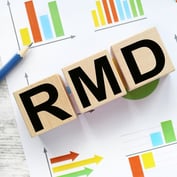What You Need to Know
- Advisory firms that offer charitable planning had six times the median assets of those that do not.
- They also had three times the median organic growth of those that do not offer charitable planning.
- Affluent clients who receive charitable planning tend to rate their advisors significantly higher on key drivers of Net Promoter Score.
Financial advisors who offer charitable planning advice to their clients tend to enjoy significantly greater assets, organic growth and new money, according to an analysis of some 1,200 RIAs and family offices released Tuesday by Fidelity Charitable.
Charitable planning highlights advisors’ breadth of expertise and enables them to strengthen client relationships and offer more holistic financial plans.
Growth With Charitable Planning
Fidelity Charitable reported that advisory firms that offer charitable planning had six times the median assets and three times the median organic growth of those that do not.
In addition, firms that offer charitable planning had 1.3 times the median new money per investor of those that do not offer it.
The report said recent studies of affluent investors found that clients who receive charitable planning are more loyal and more likely to recommend their advisor than those who do not.
Fidelity Charitable examined how millionaire clients rate their advisors through the net promoter score metric for gauging loyalty and likelihood to recommend. Clients who receive charitable planning tend to rate their advisors significantly higher on key drivers of NPS:
- Trust advisor to make decisions that are in my best interest: 7% higher.
- Advisors demonstrate they are considering my needs/goals/preferences: 13% higher.
- Advisor is a multigenerational resource to my family: 27% higher.
Philanthropy’s Upward Trend
The trends in charitable giving demonstrate that the stakes for advisors are high. Giving in the U.S. set a record last year, with three-quarters of donations coming from individuals rather than from corporations and foundations, the report said, citing the Giving USA 2021 Study by the Lilly Family School of Philanthropy.









 October 15, 2021 at 01:15 PM
October 15, 2021 at 01:15 PM











